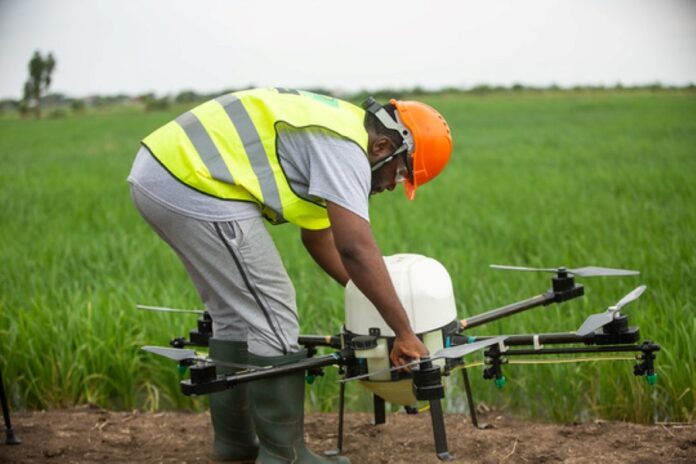As sub-Saharan Africa (SSA) grapples with the dual challenge of feeding a rapidly growing population and preserving its shrinking natural ecosystems, agricultural policy discourse is increasingly focused on achieving food self-sufficiency. However, this goal must be balanced against the backdrop of extensive forest degradation, much of which is driven by the expansion of agricultural land.
A promising solution lies in the transformative potential of Agriculture 4.0—a suite of emerging technologies that includes precision farming, the Internet of Things (IoT), cloud computing, big data analytics, drones, robotics, and biotechnology innovations. While these technologies are often developed and applied in high-income countries (HICs), there is growing recognition of their relevance for low- and middle-income countries (LMICs), particularly in Africa.
What is Agriculture 4.0?
Agriculture 4.0 represents the next evolutionary phase of farming, characterized by the integration of digital technologies into every aspect of the agricultural value chain. These tools enable smarter, data-driven decisions—optimizing inputs, improving yields, and minimizing environmental impact.
For instance:
-
Precision seeding ensures optimal plant spacing for higher yield density.
-
Soil mapping and diagnostics enable farmers to apply the right type and quantity of fertilizers and other inputs.
-
Drones assist in real-time crop monitoring and pest control.
-
Cloud-based data systems help farmers track and forecast weather patterns and crop growth.
Collectively, these technologies have the potential to help SSA farmers produce more food on existing farmland, thereby reducing the pressure to clear forests and natural habitats for cultivation.
Is Sub-Saharan Africa Ready for Agriculture 4.0?
In their recent perspective paper, the authors examine SSA’s readiness for adopting Agriculture 4.0 across five critical dimensions:
-
Scale—The potential to reach large numbers of smallholder farmers is limited by fragmentation and variability in farm size and location.
-
Finance and Capital Investment—Access to affordable financing remains a barrier. Investment is required not only in technology but also in supporting infrastructure and services.
-
Leapfrog Technologies and Digital Infrastructure—Although mobile penetration is increasing, many rural areas lack reliable internet connectivity and power supply.
-
Institutions, Governance, and Ethics—Robust frameworks are needed to manage data privacy, ensure fair access, and uphold farmer rights, especially regarding land tenure and resource use.
-
Education and Skills—There is a need for widespread farmer education and extension services to bridge the digital literacy gap and foster local innovation.
Despite these hurdles, the authors find that significant potential exists for SSA to adopt smart farming technologies that boost food production without expanding cultivated areas.
A Double-Edged Sword?
Interestingly, while Agriculture 4.0 can promote more efficient and sustainable farming practices, it may also have unintended consequences. Increased profitability and productivity could make agriculture a more attractive livelihood, potentially incentivizing further land expansion unless carefully managed. This underscores the importance of coupling technological adoption with sound land governance and clear property rights.
Moreover, ethical considerations around the use of data—especially when managed by third-party tech providers—raise concerns about transparency, farmer autonomy, and digital exclusion. There is also the risk that over-reliance on digital tools could disconnect farmers from the traditional, intuitive understanding of their landscapes, with potential repercussions for sustainability and resilience.
A Path Forward
Projects like Sentinel, which focuses on Ethiopia, Ghana, and Zambia, are working to address these complex interlinkages between food security, biodiversity conservation, and inequality reduction. By supporting integrated approaches to agricultural development, such initiatives aim to inform policies that foster equitable, environmentally sound, and technologically inclusive farming systems.
The key question remains: Can sub-Saharan Africa harness the power of Agriculture 4.0 to meet its food demands without sacrificing its forests and biodiversity?
The answer depends not just on technology itself, but on creating an enabling environment—through education, governance, infrastructure, and investment—that allows innovation to thrive in contextually appropriate, inclusive, and sustainable ways.
















 The African Research (AR) Index is a comprehensive scholarly directory and database focused explicitly on journal publishers that publish and disseminate African research.
The African Research (AR) Index is a comprehensive scholarly directory and database focused explicitly on journal publishers that publish and disseminate African research.

